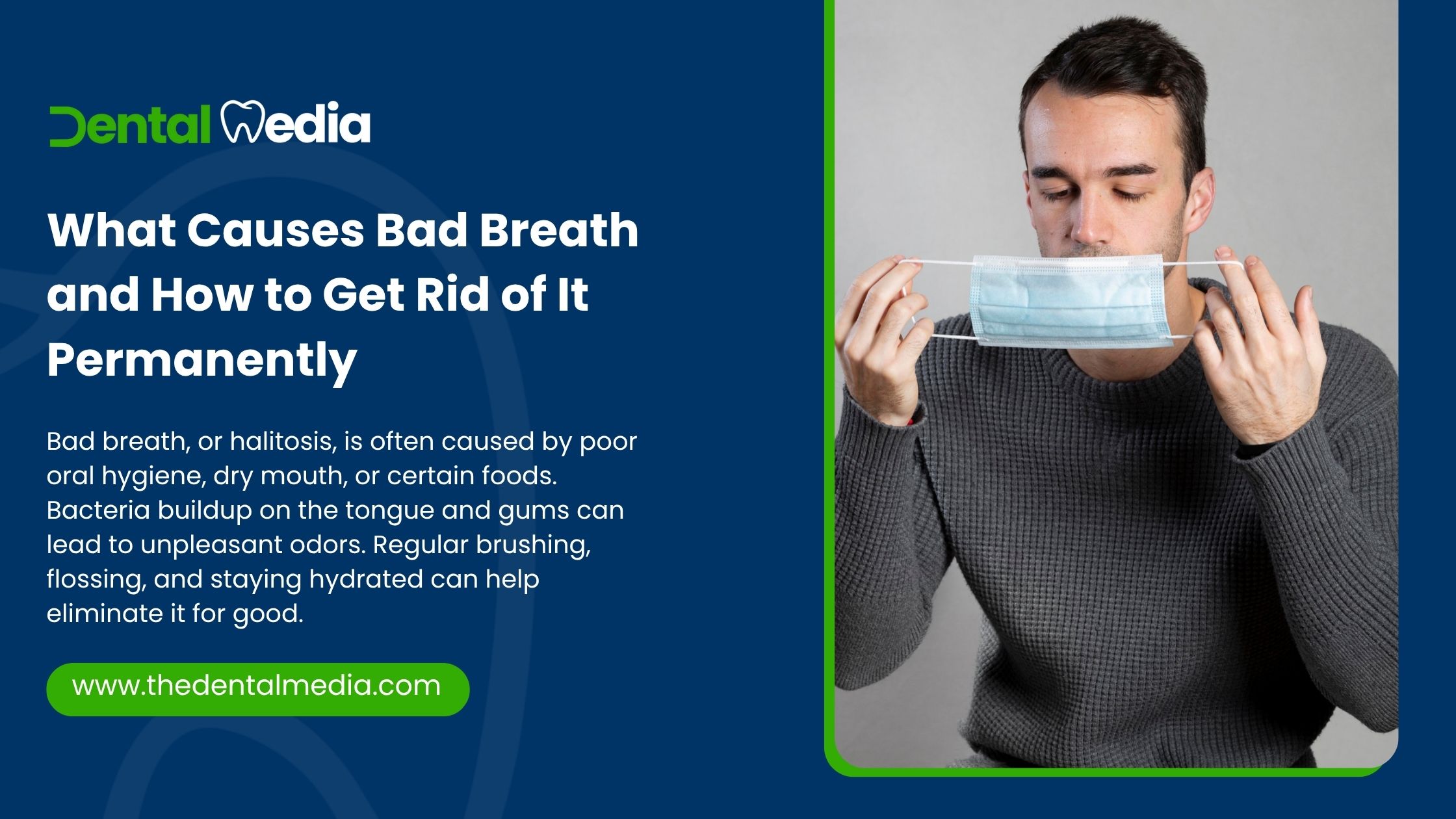Bad breath, also known as halitosis, is a common and often embarrassing condition that affects millions of people worldwide. While it can be a temporary issue caused by food or poor oral habits, chronic bad breath may signal deeper oral or health problems. The good news? With proper care, most cases can be treated—and even eliminated—permanently.
What Exactly Is Bad Breath?
Bad breath is the unpleasant odor that comes from the mouth. It’s usually caused by the activity of bacteria that feed on leftover food particles, dead cells, and mucus, releasing sulfur-containing compounds that smell foul. While everyone experiences bad breath from time to time (like morning breath), persistent halitosis is not normal and requires attention.
Common Causes of Bad Breath
1. Poor Oral Hygiene
The most frequent cause is a lack of proper brushing and flossing. Food particles left in the mouth promote bacterial growth between teeth, along the gum line, and on the tongue.
2. Dry Mouth (Xerostomia)
Saliva helps cleanse the mouth. A dry mouth allows dead cells and bacteria to accumulate, especially while sleeping, leading to “morning breath.”
3. Diet
Foods like garlic, onions, coffee, and alcohol can temporarily cause bad breath. These odors can linger even after brushing.
4. Tobacco Products
Smoking and chewing tobacco not only stain teeth but also dry out the mouth and contribute to gum disease—all of which worsen breath.
5. Gum Disease
Halitosis can be an early sign of periodontal disease, a serious gum infection caused by plaque.
6. Medical Conditions
Sometimes, chronic bad breath is linked to health issues such as:
- Sinus infections
- Tonsil stones
- Acid reflux (GERD)
- Diabetes
- Liver or kidney problems
How to Get Rid of Bad Breath Permanently
1. Brush and Floss Twice a Day
Brushing after meals and flossing once daily removes food particles and plaque that cause odor.
2. Clean Your Tongue
Use a tongue scraper or your toothbrush to gently clean the surface of your tongue. This helps remove bacteria and dead cells.
3. Stay Hydrated
Drink plenty of water throughout the day to prevent dry mouth. Sugar-free gum can also stimulate saliva production.
4. Visit the Dentist Regularly
Schedule checkups every 6 months. Professional cleanings remove tartar, and your dentist can detect signs of gum disease or other underlying problems.
5. Watch Your Diet
Avoid excessive consumption of strong-smelling foods and drinks. Incorporate crunchy fruits and vegetables like apples and carrots, which help clean teeth naturally.
6. Quit Smoking
Eliminating tobacco not only improves breath but also enhances overall oral and systemic health.
7. Treat Underlying Medical Conditions
If your dentist finds no oral cause, they may refer you to a doctor to explore other health conditions contributing to bad breath.
Natural Remedies That Help
- Green Tea: Contains polyphenols that help reduce sulfur compounds and bacterial growth.
- Parsley or Mint: Chewing fresh leaves can temporarily mask odor and help cleanse the palate.
- Baking Soda: Brushing with a paste of baking soda and water may neutralize acids and odor.
Final Thoughts
Bad breath can be frustrating, but it’s almost always manageable with consistent care and awareness. By maintaining good oral hygiene, staying hydrated, and visiting your dentist regularly, you can eliminate the root causes and enjoy fresh breath with confidence.
Need help with your oral care routine?
Visit TheDentalMedia.com for expert advice, product recommendations, and tips for lifelong oral health.

